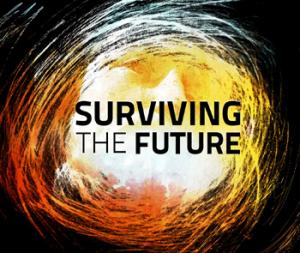
How do we, as a society, reconcile ideas about building a better future for ourselves and future generations when there are so many voices, lay and religious, speaking at the same time? From the religious perspective, how do many differing religious denominations with disparate approaches find commonality in building for the future? Where can we find common ground?
The prophet Haggai speaks to these very questions. In Haggai 1:12-2:1-9, the prophet is speaking to his people, the Israelites, about their return from exile and what they must do to put the exile behind them. The task before them was a monumental one: to rebuild the temple. But the prevailing question for Haggai was, "How do you rebuild with a disorganized people whose minds are not present?"
These minds that were fresh from foreign transient living, not knowing what the day would bring, would've had a hard time transitioning into this new found freedom. The focus was on licking wounds and beginning the healing process, not thinking about labor. But to concentrate on the past would have resulted in the same, albeit, metaphorically speaking, "pillar of salt" that befell Lot's wife when she looked back some generations before.

The Israelites didn't immediately see the healing that concentrating on rebuilding the cultural center of their world, their future, could do for them. This was the needed healing process both spiritually and mentally for this broken people. And as with any undertaking, getting the foundation perfectly level was as much spiritually important as materially integral.
Haggai in his own pleading was imploring: "If you would but have faith as a grain of a mustard seed, you will move mountains". Surely, after suffering so much loss, coming home to ruin, something so simple may have given the Israelites a tinge of hesitancy. Haggai had the wise notion of urging the leaders to the new imperative. Let the people look to the leaders for counsel, let them tell the people of what God requires of them.
The challenge and dilemma Haggai and the Israelite faced in confronting their future offer a simple but powerful lesson for us today: When our leaders are aware of and communicate what the imperative IS, then the people will begin to understand their directive, move and work together for the good.
